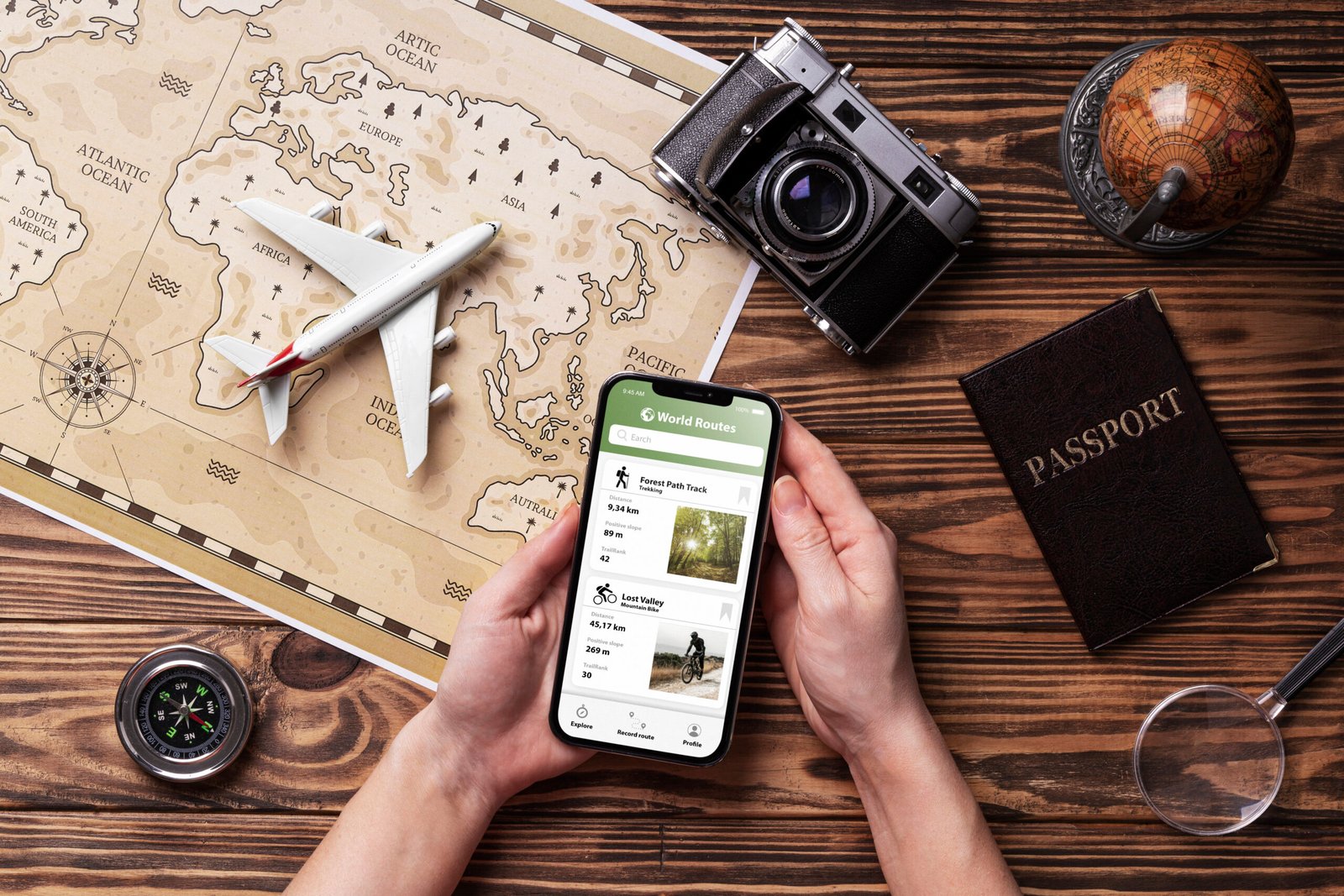Traveling with friends, family, or like-minded adventurers can create some of life’s most cherished memories. Group travel offers unique opportunities to share experiences, split costs, and explore destinations with the people who matter most to you. However, organizing a successful group trip requires careful planning, clear communication, and strategic decision-making to ensure everyone has an amazing time.
Whether you’re planning a multi-generational family reunion, a friends’ getaway, a corporate retreat, or joining organized group tours, this comprehensive guide will equip you with everything you need to know about group travel in 2025. From initial planning stages to handling unexpected challenges on the road, we’ll cover all aspects of creating unforgettable group adventures.

Understanding Group Travel Dynamics
Group travel fundamentally differs from solo or couple travel in several key ways. The complexity increases exponentially with each additional person, as different personalities, preferences, budgets, and travel styles must be harmonized into a cohesive experience.
The ideal group size typically ranges from 4 to 12 people, though this varies depending on your destination and travel style. Smaller groups offer more flexibility and easier decision-making, while larger groups can access better deals and create more dynamic social experiences. Understanding these dynamics from the outset helps set realistic expectations and prevents common pitfalls.
Communication becomes paramount in group settings. What works for individual travelers might create chaos when multiplied across multiple people. Establishing clear channels for group communication, setting expectations early, and designating leadership roles can make the difference between a harmonious journey and a disaster.
Essential Planning Strategies for Group Travel
Start Early and Establish Leadership
Successful group travel begins with early planning, ideally 6-12 months in advance for international destinations. This timeline allows for better flight deals, accommodation availability, and visa processing if required. One person should take the lead as the primary organizer, though responsibilities can be delegated to avoid burnout.
The group leader should be someone who enjoys planning, has good organizational skills, and can make decisions when consensus isn’t reached. This person will coordinate bookings, maintain itineraries, and serve as the primary contact point for all group members.
Create a group chat or communication platform where all members can stay updated on planning progress. Popular options include WhatsApp groups, Facebook Messenger, Slack channels, or dedicated travel planning apps. Ensure everyone has access and actively participates in discussions.
Budget Discussions and Financial Planning
Money conversations can be uncomfortable, but they’re crucial for group travel success. Start by establishing a realistic budget range that works for all participants. Consider that group members may have vastly different financial situations, so finding a middle ground that doesn’t exclude anyone is essential.
Break down costs into categories: transportation, accommodation, meals, activities, and miscellaneous expenses. Discuss whether costs will be split equally or if individuals will pay for their own preferences. For instance, some might prefer luxury accommodations while others are comfortable with budget options.
Consider using expense-splitting apps like Splitwise, Settle Up, or Plates to track shared expenses throughout the trip. These tools eliminate the awkwardness of money discussions and ensure fair cost distribution. Establish clear payment deadlines for group bookings to avoid last-minute complications.
Destination Selection Process
Choosing a destination that satisfies everyone can be challenging. Start by having each group member suggest 2-3 destinations they’re interested in visiting. Consider factors like climate preferences, activity interests, cultural attractions, and accessibility.
Create a simple voting system or use online polls to narrow down options. Factor in practical considerations like visa requirements, vaccination needs, and political stability. Some destinations work better for certain group sizes or travel styles than others.
Consider destinations that offer diverse activities to cater to different interests within your group. Places like Thailand’s cultural attractions and adventure activities or Europe’s diverse city experiences provide something for everyone.

Accommodation Strategies for Groups
Vacation Rentals vs. Hotels
The accommodation choice significantly impacts group dynamics and overall experience. Vacation rentals through platforms like Vrbo often provide better value for larger groups, offering common spaces for socializing and kitchen facilities for preparing meals together. These properties foster group bonding and provide flexibility for different schedules.
However, hotels offer advantages like daily housekeeping, concierge services, and individual privacy. Some hotel chains provide connecting rooms or suites that accommodate larger groups while maintaining some independence. Consider your group’s preferences for togetherness versus privacy when making this decision.
Research accommodation options early, as group-friendly properties book up quickly, especially during peak seasons. Look for properties with adequate bathrooms, common areas, and parking if needed. Read reviews specifically from other group travelers to understand potential challenges.
Booking Strategies and Room Assignments
When booking multiple hotel rooms, contact properties directly to request group rates or room proximity. Many hotels offer discounts for booking multiple rooms, especially during off-peak seasons. Alternatively, consider booking through Hotellook or Expedia for competitive group rates and package deals that include flights and accommodations.
Room assignments can be diplomatically challenging. Address this early by discussing preferences openly. Some friends prefer sharing rooms to save money, while others value privacy. Couples obviously want private rooms, but single travelers might be comfortable with roommates or prefer solo accommodations.
Consider rotating room assignments for longer trips to give everyone different experiences. The person who gets the smallest room one night might get the suite the next. This approach works well for close friends who are comfortable with flexibility.

Transportation Planning for Groups
Group Flight Booking Strategies
Booking flights for groups requires different strategies than individual travel. While booking together might seem logical, it’s often more expensive and less flexible. Instead, coordinate timing and routes while allowing individuals to book their own tickets based on their preferences and loyalty programs.
Use flight comparison tools like those available through our transportation planning guide to monitor prices across different dates. Consider nearby airports that might offer better deals or more convenient timing for the group.
For international group travel, ensure everyone understands visa requirements and passport validity rules. Some group members might need additional processing time, so plan accordingly. Consider travel insurance through providers like VisitorsCoverage to protect against unexpected changes or cancellations.
Ground Transportation Options
Ground transportation becomes complex with larger groups. Standard rental cars won’t accommodate everyone, so consider alternatives like minivans, multiple vehicles, or professional transportation services. Each option has pros and cons regarding cost, convenience, and flexibility.
Rental car considerations include driver qualification, insurance coverage, and parking availability at your destination. Not everyone might be comfortable driving in foreign countries or unfamiliar areas. Designate experienced drivers and ensure they’re covered by insurance policies.
Public transportation can be cost-effective for group travel in well-connected destinations. Research group discounts, multi-day passes, and luggage restrictions. Some cities offer special group rates for tours or transportation packages that might provide better value than individual tickets.
Professional transportation services like those bookable through GetTransfer or Kiwitaxi can eliminate stress and provide reliable airport transfers or day trip transportation. While more expensive, these options often prove worthwhile for their convenience and local expertise.

Managing Group Dynamics and Expectations
Communication Strategies
Clear communication prevents most group travel problems. Establish communication protocols before departure, including emergency contact procedures and daily check-in methods. Ensure everyone has necessary contact information and understands the itinerary.
Create detailed itineraries but build in flexibility for spontaneous activities or rest time. Share these through cloud-based platforms like Google Drive or travel planning apps so everyone can access updated information. Include important details like meeting times, addresses, and backup plans.
Address potential issues proactively through group discussions. Topics might include dining preferences, activity participation, alcohol consumption, bedtime schedules, and personal space needs. Having these conversations early prevents misunderstandings later.
Handling Conflicts and Disagreements
Despite best planning efforts, conflicts arise during group travel. Common issues include different energy levels, varying interests, punctuality problems, and financial disputes. Establish ground rules for addressing conflicts constructively.
Designate a neutral person to mediate disputes if they arise. This shouldn’t necessarily be the group leader, as they might be involved in decisions. Having someone focused on group harmony can prevent small issues from escalating into trip-ruining arguments.
Build buffer time into schedules to accommodate different paces and preferences. Some group members might want to sleep in while others prefer early starts. Creating flexible itineraries allows for these differences without causing stress.

Best Destinations for Group Travel in 2025
Beach and Resort Destinations
Beach destinations consistently rank among the best for group travel due to their relaxed atmosphere and diverse activity options. Destinations like Bali’s diverse regions offer everything from beach relaxation to cultural exploration, adventure activities, and vibrant nightlife.
Mexico’s resort areas provide excellent group travel value with all-inclusive options, organized activities, and easy accessibility. The Riviera Maya and Puerto Vallarta regions offer diverse experiences within short distances, allowing groups to experience beaches, culture, and adventure without extensive travel between locations.
Mediterranean destinations like the Greek Islands or Croatia’s Dalmatian Coast provide stunning scenery, rich history, and excellent group dining opportunities. These locations offer perfect balances of relaxation and exploration, with short travel distances between islands or coastal towns.
City Break Destinations
Major cities excel for group travel due to their diverse attractions, dining scenes, and accommodation options. European capitals like Prague, Budapest, and Vienna offer rich cultural experiences, affordable prices, and efficient public transportation systems that work well for groups.
Asian cities like Tokyo, Seoul, and Bangkok provide incredible cultural immersion, amazing food scenes, and efficient transportation networks. These destinations offer enough variety to satisfy different interests within groups while maintaining relatively compact exploration areas.
American cities like New York, Los Angeles, and Miami provide familiar environments for international visitors while offering world-class entertainment, dining, and cultural attractions. These destinations work particularly well for first-time group travelers due to their developed tourism infrastructure.
Adventure and Nature Destinations
For active groups, destinations like Costa Rica, New Zealand, or Nepal offer incredible outdoor experiences with professional guide services. These locations provide structured adventure activities that work well for groups with varying skill levels.
African safari destinations create unforgettable shared experiences for groups. Countries like Kenya, Tanzania, and South Africa offer excellent group safari packages with professional guides, comfortable accommodations, and incredible wildlife viewing opportunities.
Adventure destinations require more specialized planning but create stronger group bonds through shared challenges and achievements. Consider everyone’s fitness levels and comfort zones when selecting activities, and always book through reputable operators with proper safety credentials.

How to Create the Perfect Group Itinerary
Balancing Individual Interests
Successful group itineraries accommodate diverse interests without becoming overwhelming. Start by surveying group members about their must-see attractions, preferred activities, and personal interests. Look for overlap areas where multiple interests can be satisfied simultaneously.
Create themed days that cater to different group segments. One day might focus on cultural attractions for history enthusiasts, while another emphasizes outdoor activities for adventure seekers. This approach ensures everyone gets their preferred experiences without forcing uninterested participants into every activity.
Build in “choose your own adventure” time slots where group members can split up for different activities before reconvening for meals or evening activities. This flexibility prevents anyone from feeling obligated to participate in activities that don’t interest them.
Incorporating Rest and Flexibility
Avoid the common mistake of over-scheduling group itineraries. Build in downtime for rest, spontaneous exploration, or individual activities. Groups need more flexibility than solo travelers, as coordinating multiple people takes additional time and energy.
Plan buffer time between activities to accommodate different paces, bathroom breaks, photo opportunities, and inevitable delays. What takes 30 minutes for one person might require an hour for a group of eight.
Consider scheduling lighter days after particularly intense activities or late nights. Groups have varying energy levels and recovery needs, so balanced pacing prevents burnout and maintains positive group dynamics throughout the trip.
Group Travel Safety and Health Considerations
Health Preparations and Medical Needs
Group travel health considerations extend beyond individual needs. Ensure everyone understands vaccination requirements, necessary medications, and health insurance coverage for your destination. Some group members might have specific medical needs that affect activity choices or accommodation requirements.
Create a group medical information sheet with emergency contacts, allergies, medications, and medical conditions that could affect travel. This information should be accessible to group leaders and available for emergency situations. Respect privacy while ensuring safety needs are met.
Consider group travel health insurance through providers like VisitorsCoverage or EKTA that can provide coverage for all participants. Group policies often offer better rates than individual coverage while ensuring everyone has adequate protection.
Safety Protocols and Emergency Planning
Establish clear safety protocols for your group, including meeting points, emergency contact procedures, and communication methods. Ensure everyone has necessary contact information stored in their phones and written backup copies.
Research destination-specific safety considerations and share this information with all group members. Topics might include local customs, areas to avoid, transportation safety, and emergency services information. Knowledge prevents problems and builds confidence.
Create buddy systems for activities, especially in unfamiliar areas or during evening activities. Having someone looking out for each person helps prevent individuals from getting lost or ending up in unsafe situations.
Technology and Apps for Group Travel
Essential Travel Apps for Groups
Modern technology significantly simplifies group travel coordination. Communication apps like WhatsApp or Telegram allow for group messaging, photo sharing, and location sharing. These platforms keep everyone connected throughout the trip.
Navigation apps like Google Maps allow for real-time location sharing, which helps groups stay together in crowded areas or find each other if separated. Offline map capabilities are particularly valuable in areas with limited internet connectivity.
Expense tracking apps eliminate the complexity of splitting group costs. Apps like Splitwise automatically calculate individual shares for shared expenses, while travel budget apps help track overall group spending against planned budgets.
Booking and Planning Platforms
Use collaborative planning platforms like Google Sheets or specialized travel planning apps to maintain group itineraries, contact information, and important documents. Cloud-based platforms ensure everyone has access to updated information.
Booking platforms like GetYourGuide and Viator often offer group discounts for activities and tours. These platforms also provide reliable customer service and backup plans if activities are cancelled or modified.
Consider using travel planning apps that specialize in group coordination. These platforms often include features like voting systems for destination selection, expense tracking, and communication tools specifically designed for group travel needs.

Budget Management for Group Travel
Cost-Effective Group Strategies
Group travel offers numerous opportunities for cost savings through bulk bookings, shared accommodations, and group discounts. Research group rates for accommodations, activities, and transportation options. Many providers offer significant discounts for groups of 6 or more people.
Vacation rental properties often provide better per-person value than hotels for larger groups. Kitchen facilities allow for some meal preparation, which can significantly reduce dining costs. Properties with laundry facilities eliminate packing for longer trips. Consider booking through Vrbo for a wide selection of group-friendly vacation rentals.
Consider budget travel strategies that work particularly well for groups, such as cooking meals together, using public transportation, and taking advantage of free activities and attractions.
Establish clear policies for shared expenses before departure. Decide which costs will be split equally (accommodations, group meals, shared transportation) and which will be individual responsibilities (personal shopping, individual activities, alcohol preferences).
Use digital payment platforms and expense tracking apps to maintain transparent financial records. Regular expense reviews prevent surprises and ensure fair cost distribution throughout the trip.
When booking flights, consider using platforms like Aviasales or Trip.com for competitive group rates and flexible booking options. For activities and tours, GetYourGuide and Viator frequently offer group discounts that can significantly reduce per-person costs.
For international travel, don’t forget essential services like travel insurance through VisitorsCoverage, international SIM cards from Airalo or YeSIM, and reliable airport transfers through Welcome Pickups or GetTransfer. These services become even more important when coordinating for multiple travelers.
Consider appointing someone as the “group treasurer” to handle large shared expenses and maintain financial records. This person should be organized, trustworthy, and comfortable managing money matters for the group.

Group Travel Etiquette and Best Practices
Respectful Group Behavior
Group travel etiquette begins with mutual respect and consideration. Punctuality becomes more important when multiple people are waiting, so establish clear expectations about meeting times and attendance at planned activities.
Personal space and quiet time become precious commodities during group travel. Respect others’ needs for privacy, rest, or individual activities. Not everyone needs to participate in every group activity or social gathering.
Cultural sensitivity is amplified in group settings, as inappropriate behavior by one person reflects on the entire group. Research local customs and expectations, and ensure all group members understand appropriate behavior for your destination.
Communication Guidelines
Establish clear communication protocols for your group. This includes emergency procedures, daily check-in methods, and decision-making processes. Ensure everyone understands how group decisions will be made and what happens when consensus isn’t reached.
Create inclusive communication patterns that involve all group members in discussions and decisions. Avoid side conversations or cliques that make some members feel excluded from group activities or decisions.
Use positive communication techniques to address issues before they become problems. Regular group check-ins allow for adjustments to plans and help identify potential issues early.
Frequently Asked Questions
The optimal group size is typically 6-8 people for international travel. This size allows for group discounts and shared experiences while remaining manageable for logistics and decision-making. Smaller groups (4-6) offer more flexibility, while larger groups (10+) can access better deals but require more complex coordination.
Address budget differences early by establishing spending ranges for different trip components. Consider offering multiple accommodation tiers, optional activities, and flexible meal arrangements. Use expense-splitting apps to track shared costs fairly, and ensure no one feels pressured to spend beyond their comfort level.
Prevent conflicts through clear communication and established ground rules. When conflicts arise, address them quickly and privately when possible. Designate a neutral mediator, focus on solutions rather than blame, and remember that some flexibility from all parties is usually required.
International group travel should be planned 6-12 months in advance to secure better deals and ensure availability. Domestic travel can be planned 3-6 months ahead. Early planning allows for better flight prices, accommodation availability, and visa processing if required.
Successful group travel includes both together time and flexibility for individual interests. Plan core group activities while allowing time for people to pursue individual interests or smaller group activities. This balance prevents travel fatigue and accommodates different preferences within the group.
Ready to start planning your group adventure? Check out our comprehensive travel planning guide for more detailed information, and explore our destination guides to find the perfect location for your group’s next unforgettable journey.




